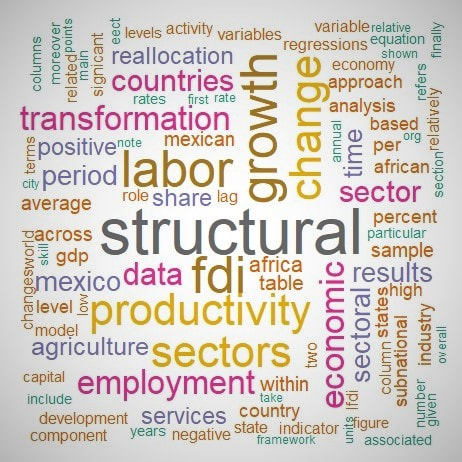Research
|
My focus is on empirical research.
In my current work, I am studying aspects of globalization and economic development. For example, I am contributing to the question:
Some of my work has a regional focus on countries in Africa. For example:
Scroll down to find details on my working papers and publications. |

